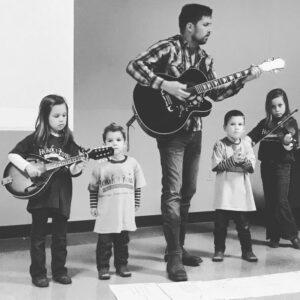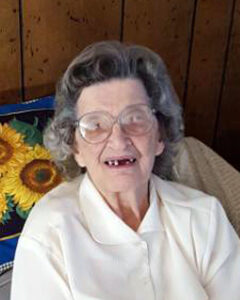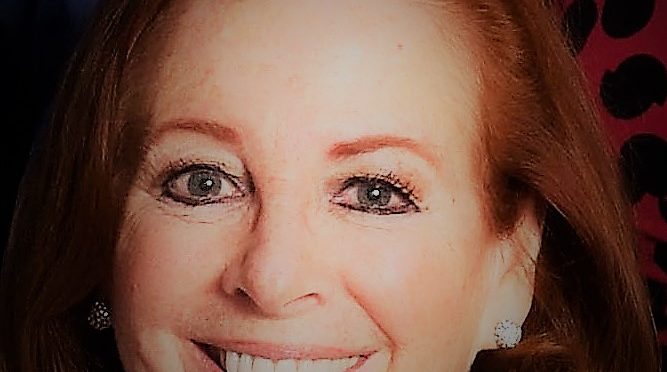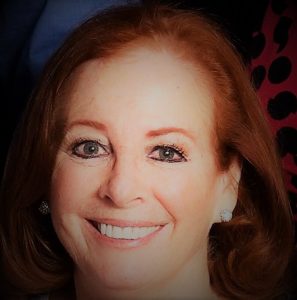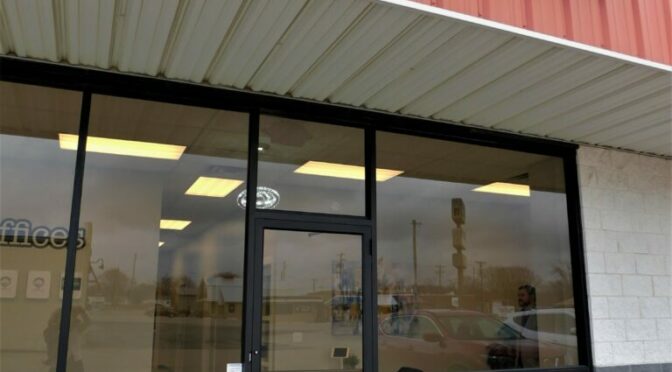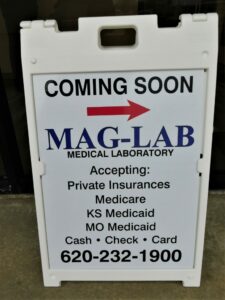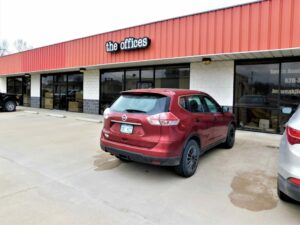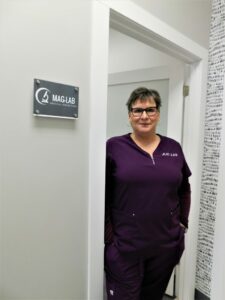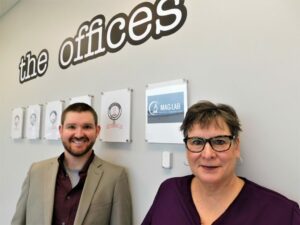Governor Kelly delivers the State of the State address
The following State of the State address is from Governor Laura Kelly:
Mr. Speaker, Madam President, Madam Chief Justice, Lt. Governor Rogers, members of the Legislature, Cabinet officers, leaders of the Kansas tribes, honored guests, and fellow Kansans.
It is my high honor to stand before you this evening to report on the progress of my administration, and to share my plans for the year ahead.
We have much to discuss tonight. But before I begin, please welcome back the third “First Gentleman” in Kansas history, my husband, Dr. Ted Daughety.
Ted still misses his garden and his darkroom, but he’s adjusting to our new home by adding some personal touches. He has taken an interest in putting the “Cedar” back in Cedar Crest with the planting of new trees. He also started a vegetable garden. He even has his own compost pile.
In addition to all of that, he continues to practice medicine full time. So, Ted and I have settled into life at the Governor’s Residence.
In fact, it was the backdrop for our family’s biggest news of 2019! It was a joy to watch our daughter Kathleen wed our new son-in-law, Mathias, at Cedar Crest earlier this year, with our younger daughter, Molly, standing by her sister’s side.
Speaking of siblings – my sister, Kay and my brother Paul are also here tonight from Colorado.
And listening in online from Richmond, Virginia, is my brother, Father Fred.
As everyone here knows, it is not easy to be related to someone who serves in public office. I am grateful to my family for the support they have provided from the very first day of this journey.
Since we’re talking about family members, I dare not exclude the four-legged variety. Frances, the First Cat of Kansas, sends her regards.
If there is one thing I didn’t expect this past year, it was the widespread interest in my cat. She’s made lots of new friends on social media. She gets more news coverage than I do.
Frances asked me to relay a special message to Lt. Governor Lynn Rogers, who is here with his wife, Kris.
Lynn — Frances said to tell you she’s very close to exceeding your following on Twitter. And that you need to step up your game.
As everyone here has no doubt come to know, Lynn Rogers is an exceptional lieutenant governor. In case you couldn’t tell, he’s also unfailingly good-natured.
Lynn hit the road almost as soon as we took our oaths of office last year, logging more than 17,000 miles on a statewide listening tour, engaging Kansans in our efforts to establish the Office of Rural Prosperity.
Housing shortages, affordable childcare, revitalizing Main Street corridors, protecting rural hospitals, expanding rural broadband — these are all concerns that weigh heavily on the minds of Kansans. With the right mix of state support and local ingenuity, I am confident that the Office of Rural Prosperity will serve as an invaluable partner for Kansas communities to sustain and enhance our state’s rural heritage.
Thank you, Lynn, for your work on this very important issue.
In fact, thank you to my entire Cabinet – seated in the west gallery, behind me.
No governor can succeed without a strong and supportive team, and I could not have asked for a more qualified group of leaders to help rebuild our state.
I realize, for those who have been around the Kansas Capitol a session or two, these annual messages might sometimes seem a bit routine. But tonight carries a special distinction.
For the first time in Kansas history, women sit at the helm of all three branches of Kansas government.
It is my privilege to serve as our state’s third female governor, alongside the first female Senate President, Susan Wagle. And the second female Chief Justice of the Supreme Court, Marla Luckert.
Kansas reached this milestone at a fitting moment, as 2020 also marks the 100th anniversary of the passage of the 19th Amendment, which granted women the right to vote.
Anniversaries and new years are always important opportunities to reflect on time gone by, and on progress made. We have another such opportunity this evening, as we usher in not just a new legislative session, but a new decade.
So let us go back for just a moment and remember where we’ve been.
Almost ten years ago — to the day — we gathered in this chamber for the 2010 state of the state address. Kansas found itself in the throes of the worst economic downturn in 80 years. The Great Recession had necessitated $1 billion dollars in spending cuts. Another $400 million dollar budget gap still loomed before us. It was brutal.
It’s probably for the best that we did not realize, in that moment, that this would be the brightest fiscal outlook Kansas would have for another seven years.
Of course, you know what happened next. A new administration was in place one year later, and the saga of the failed tax experiment began soon thereafter. Instead of recovering from the Great Recession alongside every other state in the nation, Kansas settled in for six more years of financial chaos. This time, it was self-inflicted.
By the time I stood before you as governor in 2019, Kansas was on life support. The state had racked up record amounts of debt, schools had been cut to the bone, taxes on groceries had been increased until they were the highest in the nation, agencies had been decimated, and Kansas had generally become a national model for what not to do.
After devastating cuts and relentless crises – a bipartisan coalition of lawmakers demonstrated courage and conviction when they joined forces in the face of adversity to stop the bleeding in 2017.
That bipartisan effort — one that so many of you helped bring to fruition — changed everything.
So, although it was a decade in which much went wrong, we rebounded in a way that only Kansas can.
Over the last 12 months, Kansas added 12,400 private sector jobs.
The state not only reached a new employment record, our unemployment rate fell to its lowest point in 40 years.
Since I became governor, we fulfilled our promise to properly fund Kansas schools.
We reinvested in public safety, and worked tirelessly to stabilize our foster care system.
We increased pay and lowered health insurance premiums for thousands of public employees and their families.
We’re paying off debt so we can eventually establish a state rainy day fund and better prepare for financial emergencies.
In US News and World Report’s “Best States” rankings, Kansas jumped seven spots in 2019. We now rank 15th highest in education. We scored 7th best in infrastructure.
In fact, I’m proud to report that we improved in almost every category, including the economy and fiscal stability.
I’m also proud to report that in CNBC’s annual “Top States for Business,” Kansas was declared the “comeback state of 2019.”
Above all, I am proud to report that Kansas has ended a turbulent decade on a high note. As we look to the future, the state of our state grows stronger every day.
We have so many reasons to be hopeful tonight. But make no mistake: one year of progress cannot erase a decade of damage. Two of the most important sectors of the Kansas economy remain incredibly fragile.
As a major Boeing supplier, Spirit AeroSystems was hit hard by the recent suspension of the 737 Max production. Even as we speak, thousands of Wichita families are suddenly fearful that soon they may be unable to provide for their families.
I’ve been in constant communication with local, state and federal officials since temporary layoffs were announced late last week. I instructed my Labor Secretary, Delia Garcia, to take an all-hands-on-deck approach to help workers, Spirit and other Kansas businesses that will be negatively impacted.
Unfortunately, Kansas agriculture also finds itself at a precarious moment.
Between historic flooding last spring and escalating trade tensions over the last two years, net farm incomes have dropped 50 percent from their peak in 2013.
Congress could certainly help, and they could start by ratifying the pending USMCA trade agreement.
I have been a vocal proponent of the USMCA agreement from the beginning. I commend the U.S. House of Representatives for passing this agreement, and urge the U.S. Senate to do the same.
It’s critical for Kansas. We are indeed an export state. And with us tonight, from our second largest customer, Canada, is Consul General Stephane Lessard.
Thank you for being here, Consul General.
When it comes to the livelihoods of Kansas families and businesses, we won’t wait on Washington and the USMCA agreement however. We must take matters into our own hands.
The International Trade Division at the Department of Commerce was dismantled in recent years. I’ve instructed my Commerce Secretary, David Toland, to focus on rebuilding this division.
As I said before, Kansas is an export state, and we cannot compete in a global economy without strong international trading partners. We must breathe new life into our efforts to increase exports and compel international companies to choose Kansas.
I’m not just focused on convincing companies to choose Kansas. I’m also focused on the people who choose Kansas.
The effort to reconnect people with their state government and to rebuild public trust — starts at the top.
From day one, I’ve wanted Kansans to hear from me about what we’re doing, and why we’re doing it. Kansans deserve to engage directly with their Governor.
That’s why I’ve hosted “Kansan to Kansan” townhall meetings regularly since I took office. This fall, when I was building the state budget, I went on a listening tour to hear directly from the people about their priorities.
I’ve talked extensively — and candidly — with Kansans about what we’ve accomplished, and where we’d like to go in the year ahead. In turn, they’ve spoken candidly with me about their concerns, and how state government can better serve them.
I’d like to share their thoughts and concerns with you, and what I think we can do about them, together, in 2020.
I promised Kansans that I would be “the education governor.” I consider the progress we’ve made on public education to be our most important accomplishment to date — but we have more to do.
Last year I stood here and asked you to put aside partisanship and work with me to finally provide schools with the resources they need to be successful. You did it, and I applaud you.
I was proud to stand with many of you that Saturday morning last April, as hundreds of public school teachers packed into the ceremonial office to witness the signing of legislation that would end a decades-long legal battle over school finance.
It was truly a remarkable moment. Not just because of what we accomplished, but how we accomplished it.
None of the teachers who attended the bill signing cared if it was a “Democrat” plan or a “Republican” plan. They cared only that their schools would be funded. That it might help improve Kansas teacher salaries, which rank 41st in the nation. They cared that it would ensure educators have what they need to serve Kansas children well.
Let’s keep that in mind as we forge ahead.
Restoring school funding was a critical first step. But now I challenge us all to engage in a bigger and bolder conversation about “what’s next.”
Soon after taking office, I established the Council on Education. I asked the Council to re-evaluate every corner of our educational ecosystem — early childhood, K-12, higher education and workforce development — and to bring those players to the same table. I also engaged business and industry, labor, and other stakeholders so we may cultivate the workforce that Kansas will need to compete in the years ahead.
It is time to align all of these moving parts so that we can put Kansas at the forefront of growth and innovation. The work of this Council will be essential in helping us shape the future of Kansas education, the Kansas workforce, and Kansas as a state.
I want to recognize the co-chairs of this council – Dr. Cindy Lane, the former KCK Public Schools Superintendent and Dr. Fred Dierksen, current Superintendent of Dodge City Public Schools, who are here tonight in the gallery. Thank you for all your hard work – and the hard work yet to come.
Our progress on education is a valuable reminder to all of us that Kansans do not keep partisan score — even when clever sports analogies are employed. Kansans care about results. That’s what we get when we work together.
We can deliver bipartisan results again in 2020.
And we can start with one of the most urgent issues we face.
This must be the year Kansas becomes the 37th state to expand Medicaid.
Apparently, you have heard that Kansas made a little bit of news on this front last week.
After weeks of tough negotiations and lots of give and take, we developed a proposal that will not only expand healthcare to 150,000 Kansans, but also has the potential to lower health insurance premiums in the marketplace.
It was an honor to stand with so many of you — Republican and Democrat, Representatives and Senators — who have been committed to getting this done for Kansas.
We have so many reasons to bring this across the finish line.
In July, a study of mortality rates in non-expansion states estimated that 288 Kansans have died prematurely every year from 2014 to 2017 specifically due to our failure to adopt expansion.
Another study, released in November, showed that expansion improves infant and maternal health.
Yet another found the rate of rural hospital closure increases significantly in non-expansion states like Kansas.
Just last week, a study was released that linked Medicaid Expansion to a decline in opioid abuse.
There is a stack of rigorous, nonpartisan evidence to illustrate how critical KanCare expansion is to the health and welfare of our state. It grows by the day.
So does public support.
The number of expansion states continues to increase. No state has reversed its decision to expand. And voters across the ideological spectrum continue to reaffirm their support for expansion in election after election.
I’m talking about in states like Kentucky. Louisiana. Virginia. States where access to affordable healthcare drove people to the polls.
I’m talking about Nebraska, where 54% of voters approved Medicaid Expansion by ballot initiative in 2018.
I’m talking about Oklahoma, where in October a record number of petitions were submitted to put Medicaid expansion on the 2020 ballot.
And, yes, I’m even talking about Missouri. Where expansion is well on its way to a statewide vote, with momentum growing by the day.
If nothing else, surely maintaining Kansas’ 159-year tradition of beating Missouri is something we can all get behind…
In all seriousness:
As I said last week, compromise is hard. It is messy. It is slow. But it is so worth it.
Now it’s up to all of you to finish the task.
When we do add this to our list of bipartisan accomplishments, it will not only save lives, it will close the book on a long, senseless, expensive political fight — making room to improve access to health care and grow the Kansas economy.
We are so close. Let’s get this done.
As we continue our work to rebuild Kansas, there’s one area where we mean it… literally. It’s time for us to develop a new, comprehensive transportation plan so that we can rebuild roads and bridges across our state.
My Secretary of Transportation, Julie Lorenz, and her team have spent months hosting community meetings to ensure that all Kansans – in communities large and small – have the opportunity to help shape the future of infrastructure in a way that meets local needs.
Infrastructure is about far more than just roads and bridges.
It’s the means by which our school buses safely transport our most precious cargo. It’s how we make Kansans’ daily commutes faster and safer so they can spend more time with their families. It means jobs. Thousands of jobs. It’s the gateway to rural broadband. And as an export state, it is how we get Kansas goods to market and keep our economy humming.
This will be the fourth time Kansas has pursued such an endeavor. Each plan has improved upon the plan before, adapting to changing needs throughout the state and building on lessons learned. Each plan has propelled Kansas into the future, making our transportation system one of the best in the nation.
There’s one lesson from the past, in particular, I hope you will keep in mind as we begin this process anew:
Even the best laid infrastructure plan will crumble if we do not maintain the resources we need as a state to see it through.
As promised, last year I officially began “closing down” the “Bank of KDOT.” I am fully committed to continuing that phase out throughout my first term so that we can fulfill the promises of the previous transportation plan and invest in the future.
But I’ve always been clear that this pledge comes with one, critical caveat: stable state revenues.
Rebuilding fiscal stability in Kansas state government has been one of my top priorities as governor. Last January, I presented a balanced budget to the Legislature without raising taxes. A budget that paid down debt. Re-invested in core services like education and healthcare. All while leaving the largest ending balance in more than a decade.
The budget didn’t quite return to me with all those features intact.
The budget that came back to my desk in May included $182 million dollars more in spending than I had recommended. It did not maintain the statutorily-required ending balance we need to cushion state investments in case of an emergency. It also spent more than we were taking in.
The good news is that Kansas’ economic outlook has stabilized, and even improved a bit. While the risk of a recession will always remain a possibility, the foreseeable future does not appear as ominous as it did last January.
That is why tomorrow, for the second year in a row, I will submit to you a balanced budget that continues our rebuilding efforts, that continues to pay down debt, and that honors my promise to cut taxes.
Kansas families are taxed more for food than anywhere else in the United States. These families shouldn’t have to pay more than their fair share, especially when it comes to the essentials. So my budget will take the first step in lowering taxes on groceries, starting with Kansans who need help the most.
I’ve always considered lowering the tax on groceries an urgent need. But ultimately we must work our way back to that longstanding notion of the “three-legged stool.” We must rebalance all of our revenue streams — income, sales, and property tax.
The Kansas tax structure has become more than a little lopsided in recent years, which is why my budget will also include property tax relief.
As funding for schools, cities and counties was cut over the last decade, local units of government were left with few options to make ends meet. Increasing property taxes was one of them.
This left local communities frustrated, and put a desperate strain on working Kansans and Kansans living on fixed incomes — especially our seniors. They need relief, and we can give it to them in 2020.
Together, the food and property tax relief I will offer will take meaningful strides in re-building our overall tax structure so that it is more fair and more fiscally responsible.
But it is only the first step of what must be a multi-phased, multi-year process.
I understand that any discussion of taxes is politically charged. But if we ever truly want to move forward, we must confront the stark inequities, outdated inefficiencies, and expensive loopholes riddled throughout our tax code.
To this end, I established a Council on Tax Reform last summer to develop such comprehensive, commonsense reforms.
I’d like to recognize former Democratic Senator Janis Lee, who is here with us in the gallery, and former Republican Senate President Steve Morris, for spearheading this bipartisan effort.
The Tax Council’s work will continue into 2020. In the meantime, the Council identified a targeted food sales tax cut through a refundable rebate and broad property tax relief as two initial steps we can and should take as a state to begin the long process of re-balancing our revenue streams.
Before I move on, I ask you to have a little faith.
As governor, I have worked diligently to honor every promise I’ve made to Kansans. I’ve also worked to include you as my partner in the governing process every step of the way. My commitment to working with you on tax reform is no different.
I began my remarks this evening with a quick stroll down memory lane —- but not because the last 10 years were filled with such pleasant memories.
I started there because I don’t want Kansas to finish there. We simply cannot go back.
So I want to be clear: to protect our recovery, and to ensure Kansas does not repeat the mistakes of the last decade, I will veto any tax bill that comes to my desk that throws our state back into fiscal crisis, or debt, or sends us back to court for underfunding our schools.
I hope you won’t stand for it either.
This has been an eventful year.
One year ago, our social safety net was in shreds.
Together, we took action. We hired dozens of new social workers across the state to better support vulnerable families. We created special response teams and amplified collaboration with the KBI to more quickly recover missing foster care youth. We brought nursing homes back from the brink of fiscal ruin without closing a single facility. We bolstered funding for mental health in an effort to c


